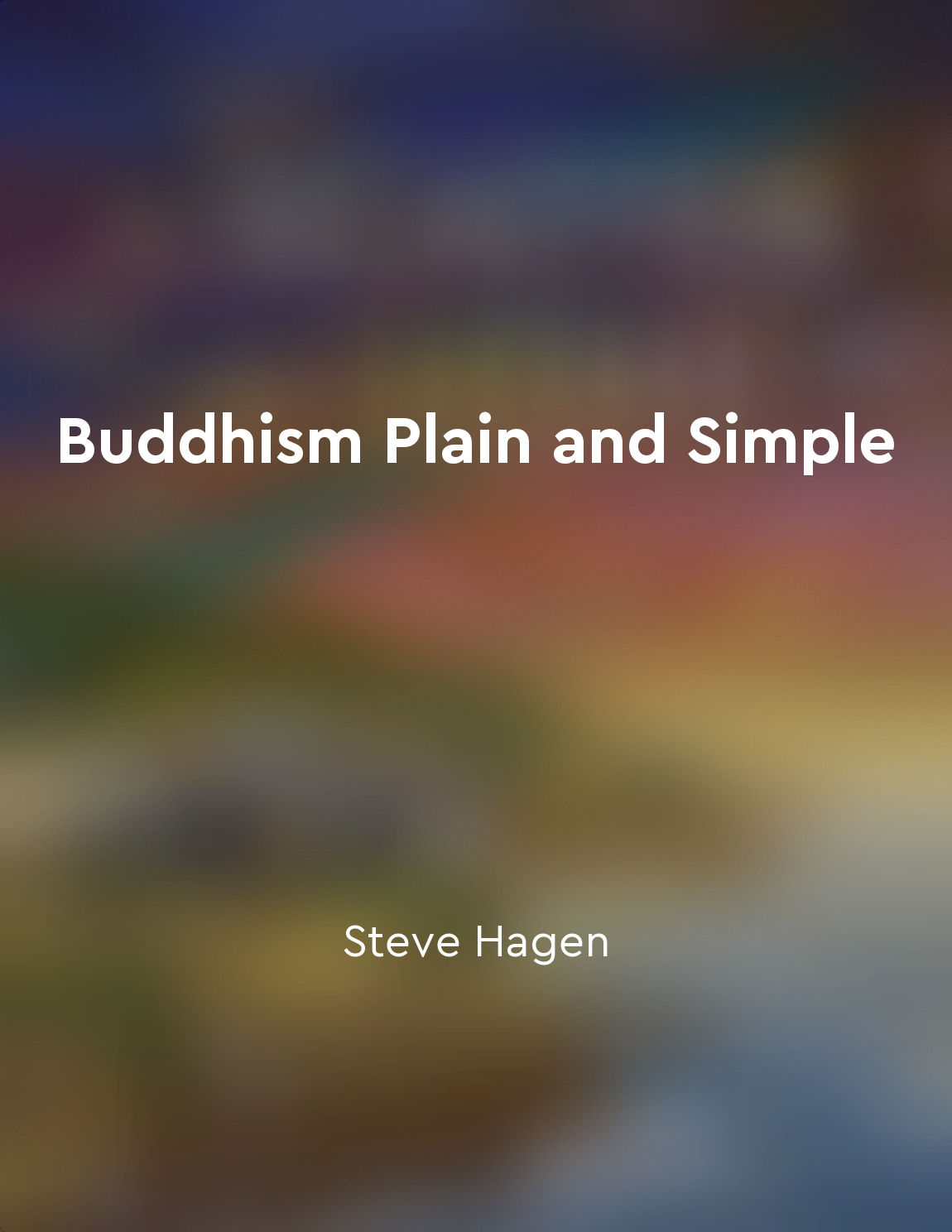Audio available in app
Understanding the Four Noble Truths is fundamental to Buddhist teachings from "summary" of What the Buddha Taught by Walpola Rahula
The Four Noble Truths form the core of Buddhist philosophy, offering profound insights into the nature of suffering and the path to liberation. The first truth identifies the presence of suffering (dukkha) in life, acknowledging that dissatisfaction exists in various forms, from the mundane to the profound. This recognition is not meant to instill despair but to promote awareness and acceptance of life's inherent challenges. The second truth delves into the origins of this suffering, highlighting attachment and craving (tanha) as primary causes. These desires lead to a cycle of rebirth and continuous dissatisfaction. By understanding the roots of suffering, individuals can begin to recognize the patterns of their own lives, leading to a profound personal insight. The third truth offers hope: it asserts that liberation from suffering is achievable. This cessation (nirodha) signifies the possibility of attaining a state free from the binds of craving and ignorance. It is not merely an abstract idea but a tangible goal that can be realized through dedicated practice and understanding. The fourth truth outlines the path to this liberation, encapsulated in the Noble Eightfold Path. This path provides practical guidance through ethical conduct, mental discipline, and wisdom. It emphasizes the interconnectedness of thought, action, and ultimate awakening. Engaging with these truths invites an exploration of one's own experiences, fostering an understanding that transcends mere intellectual comprehension. The journey through these teachings is one of transformation, encouraging individuals to confront their suffering, recognize its causes, and embark on a path that leads to genuine relief and insight. This holistic approach cultivates a deeper appreciation of life and the potential for profound change within oneself.Similar Posts

Wealth is useless if not earned with virtue
The wise say wealth gathered in ways lacking virtue
Is like a gemstone strung on a thread of straw.
Wealth not earned with vir...

Cultivating selflove is foundational in all relationships
The foundation of all relationships is not what we might think. It is not about finding the perfect partner, saying the right w...

The concept of karma underscores personal responsibility
The law of karma is a fundamental principle in Buddhism, emphasizing the accountability of individuals for their actions. Accor...
Embracing the wisdom of the Guru's teachings
The teachings of the Guru are like a guiding light in the darkness of ignorance. They illuminate the path of truth and lead us ...
Embrace the freedom of a life lived authentically
The idea of living authentically is not a new one. It is something that has been explored by philosophers, poets, and thinkers ...

The power of the mind shapes one's reality
The mind, according to the Buddha, has the power to shape one's reality. The thoughts that arise in the mind, the beliefs that ...
Overcoming destructive emotions
Overcoming destructive emotions is a fundamental principle in Buddhism. The Dalai Lama explains that these destructive emotions...
True happiness comes from living a life of purpose and meaning
In a world filled with suffering and hardship, it can be easy to lose sight of what truly brings us happiness. Many people sear...

Life is impermanent and constantly changing
Life is impermanent and constantly changing. This is a fundamental truth of existence that Buddhism teaches. Impermanence is no...
